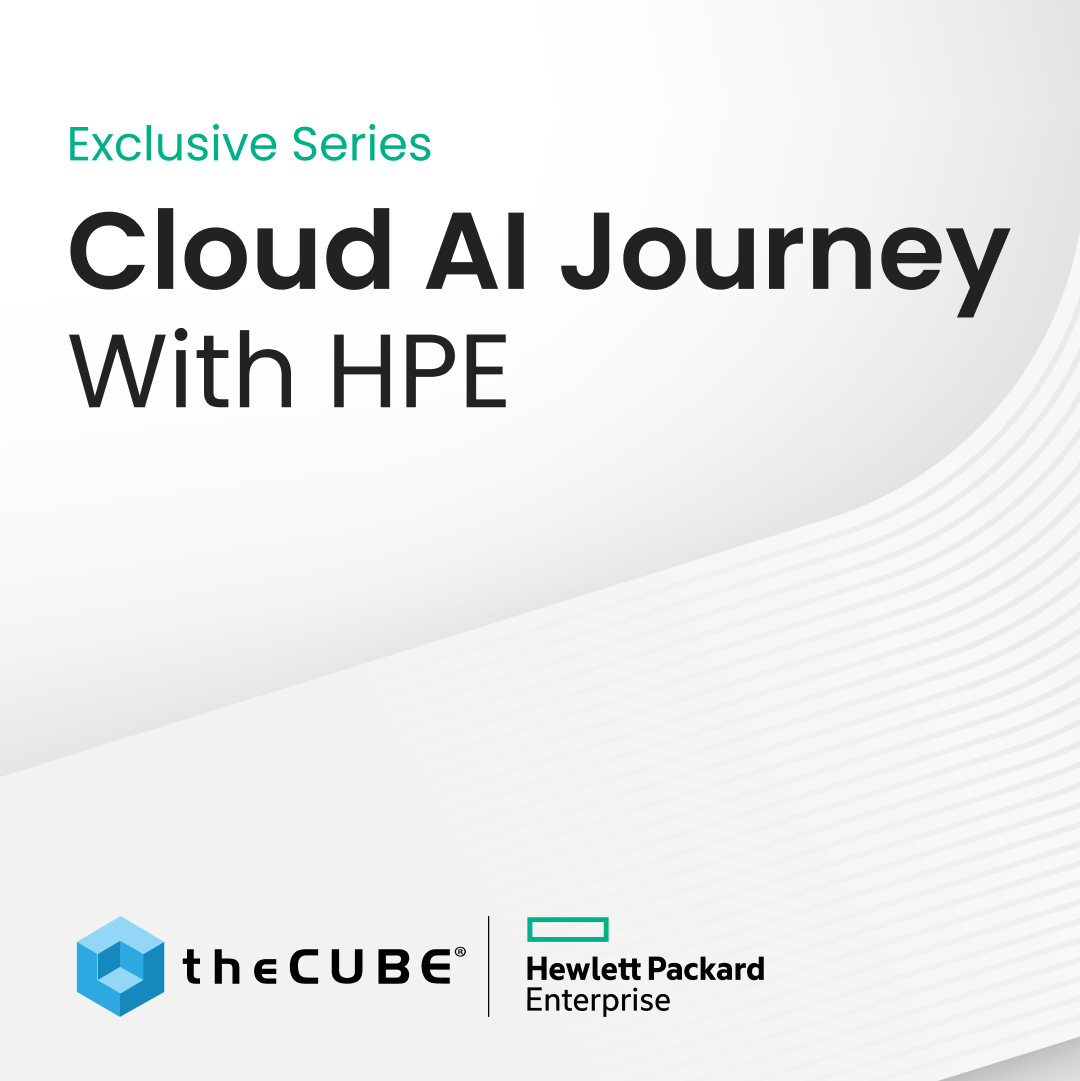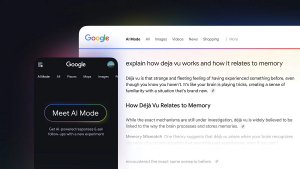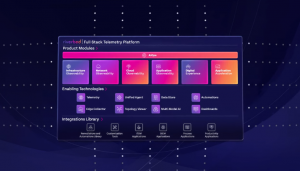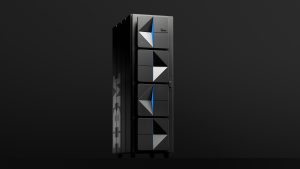Without Skill, Data Can Lack Value in the Information Era says Jaspersoft CEO
![]() What are the pilars of prosperity? According to traditional ideals of the factors of production, there’s land, labor and capital. But given our advanced global economy, isn’t it time to re-think this theory? Jaspersoft CEO Brian Gentile cites contemporary data tech trends in his updated version. He points to time, information and capital as the conditions for business success. Data-driven applications are on the rise, empowering more people on a leveler playing field. Competition has shifted around our data capabilities, shining insight on the enterprise and redefining the rules of engagement. In this week’s Snapshot Gentile elaborates on the inspired thoughts behind his new theory, outlined in a recent Forbes article, how he’s applied this to Jaspersoft (one of our top 10 open source picks), and his love for the industrial era.
What are the pilars of prosperity? According to traditional ideals of the factors of production, there’s land, labor and capital. But given our advanced global economy, isn’t it time to re-think this theory? Jaspersoft CEO Brian Gentile cites contemporary data tech trends in his updated version. He points to time, information and capital as the conditions for business success. Data-driven applications are on the rise, empowering more people on a leveler playing field. Competition has shifted around our data capabilities, shining insight on the enterprise and redefining the rules of engagement. In this week’s Snapshot Gentile elaborates on the inspired thoughts behind his new theory, outlined in a recent Forbes article, how he’s applied this to Jaspersoft (one of our top 10 open source picks), and his love for the industrial era.
What triggered you to reconsider the traditional economic principles of land, labor and capital?
My fascination with economic transformation based on “information” began about ten years ago, when the Internet became so clearly the agent of this change. Then, as enterprise applications began being developed based (entirely) on open standards and web-based technology stacks, the role of “time” as a principal economic driver became clearer. Open standards and web-based technology make the design, development, delivery, and consumption of sophisticated application software so much more available and cost-effective, that it has changed the landscape of competition through its ubiquity.
During the past few years, I’ve realized that the classical economic principle of land, labor, and capital as the primary factors of (or inputs to) production has, in itself, been transformed. Now, companies compete based on their ability to harness time and information, and in the 21st century, these two modern factors replace land and labor as the enablers of value and wealth creation. The third factor, “capital”, remains unchanged and is critical in all western-style, capitalistic economies. I have contemplated this shift in core economic theory for several years and only hope for the time required to write a book on the topic, which I would call “The New Factors of Production”. Until then, I’ll continue to write articles about this (the most recent of which has appeared in Forbes).
Will “capital” ever lose its influence as a primary factor for creating economic value?
![]() Access to and thresholds for capital have changed meaningfully during the past few decades, but its importance as a factor of production has not lessened, and I would not expect it to do so. In the most advanced capitalistic economies, access to sources of capital has improved. Over decades of economic development, the traditional banking infrastructure has been augmented by new possibilities for capital: venture equity, private equity, private lenders, and now angel networks, just to name a few. Now in the toughest, emerging economies, new micro-loan organizations and networks are forming, allowing once scarce capital to flow more fluidly to high-potential ideas, even if individual loan amounts are very small. These new access points allow capital, as the venerable factor of production, to better reach those who need it.
Access to and thresholds for capital have changed meaningfully during the past few decades, but its importance as a factor of production has not lessened, and I would not expect it to do so. In the most advanced capitalistic economies, access to sources of capital has improved. Over decades of economic development, the traditional banking infrastructure has been augmented by new possibilities for capital: venture equity, private equity, private lenders, and now angel networks, just to name a few. Now in the toughest, emerging economies, new micro-loan organizations and networks are forming, allowing once scarce capital to flow more fluidly to high-potential ideas, even if individual loan amounts are very small. These new access points allow capital, as the venerable factor of production, to better reach those who need it.
In addition, the threshold for “sufficient” capital has declined significantly. In many ways, it has never been less expensive to start and grow a company. Anywhere in the world, entrepreneurs can turn on an information infrastructure in hours, relying purely on cloud-based computing services from a number of providers. Likewise, through the ubiquity of the Internet, an entrepreneur can find and leverage “labor” (specific talent/skill, human capacity) using very low-cost auction and hiring techniques to create an effective, scalable, and virtual workforce. These techniques allow a firm’s capital to be used more judiciously than ever. Amazing, really.
How is Jaspersoft contributing and adapting to these new economic theories?
![]() Jaspersoft’s mission is precisely to help its customers compete on the basis of time and information. From its very start, Jaspersoft was determined to build and advance the industry’s most modern, flexible, and scalable Business Intelligence (BI) software. To do this, we consciously chose the open source model of development and distribution, believing that the power and principles of community involvement and broad usage would prove continually more valuable (and it has). We knew time would be important to our business model to rapidly compete in a crowded software category.
Jaspersoft’s mission is precisely to help its customers compete on the basis of time and information. From its very start, Jaspersoft was determined to build and advance the industry’s most modern, flexible, and scalable Business Intelligence (BI) software. To do this, we consciously chose the open source model of development and distribution, believing that the power and principles of community involvement and broad usage would prove continually more valuable (and it has). We knew time would be important to our business model to rapidly compete in a crowded software category.
Jaspersoft focuses on delivering our modern BI software to those who are best suited to create value from it. We call these individuals “BI Builders” because they possess a powerful confluence of knowledge about data, analytics, and business (process, function, industry, etc.) that truly yields new value from insight. In many ways, the BI Builder is the real hero in the equation that determines how companies can compete based on time and information. Jaspersoft becomes their partner and enabler.
The result is thousands of commercially available software applications that include Jaspersoft technology. These software applications power the world and deliver faster, more effective insight into data. Jaspersoft’s open source model gives these applications very high quality reporting and analytic capabilities at a very low cost, so our customers create new economic value, arguably, where it could not have been created in the past.
What’s your favorite era as far as economic impact?
![]() I have great respect, even reverence, for the Industrial Era. To this day, no other era’s advancements have changed our world as dramatically. Imagine our lives today without electricity, automobiles, or air travel. Of course, I do expect the advancements from the Information Age to eclipse those industrial achievements in terms of economic impact relatively soon. The Internet itself will prove to be the single most economically important invention ever (if you can call it a single invention, which I recognize is debatable). During this century, though, the Information Era will yield more quickly than ever to the next, as we see the rise and use of cyber-organisms that will intelligently augment and transform human life in ways we can only now estimate. Often referred to as “the Singularity”, I can only hope to be alive to see this new era underway.
I have great respect, even reverence, for the Industrial Era. To this day, no other era’s advancements have changed our world as dramatically. Imagine our lives today without electricity, automobiles, or air travel. Of course, I do expect the advancements from the Information Age to eclipse those industrial achievements in terms of economic impact relatively soon. The Internet itself will prove to be the single most economically important invention ever (if you can call it a single invention, which I recognize is debatable). During this century, though, the Information Era will yield more quickly than ever to the next, as we see the rise and use of cyber-organisms that will intelligently augment and transform human life in ways we can only now estimate. Often referred to as “the Singularity”, I can only hope to be alive to see this new era underway.
We’ve reached a junction where time and information combine, providing insightful & predictive analytics. What does “balancing this future” mean to you?
More than ever, a balanced future for data will require a sharp, discerning focus on what really matters. Organizations of any size will have access to potentially enormous amounts of valuable data, on which they can make more informed decisions and create more economic value. The skill and acumen to determine which data to pay attention to and which to safely ignore will be the most important point of balance. Absent this skill, significant time and resources could be wasted wading through data that has no value.
Fortunately, the existence of new tools – cloud-based, open-sourced, and pervasively delivered – will enable nearly anyone the possibility of this discernment. I think of these tools, in many ways, as a great equalizer – providing opportunity for everyone to create value from information. From there, it is truly up to the quality of the individual to surface breakthrough ideas that deliver wholly new economic value. It is in this way that time and information have become so obviously the new factors of production.
A message from John Furrier, co-founder of SiliconANGLE:
Your vote of support is important to us and it helps us keep the content FREE.
One click below supports our mission to provide free, deep, and relevant content.
Join our community on YouTube
Join the community that includes more than 15,000 #CubeAlumni experts, including Amazon.com CEO Andy Jassy, Dell Technologies founder and CEO Michael Dell, Intel CEO Pat Gelsinger, and many more luminaries and experts.
THANK YOU













